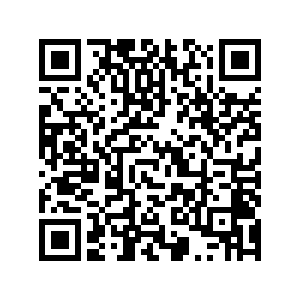NEW YORK, April 5 (Xinhua) -- The power of the U.S. dollar or the U.S. status as a superpower in the world is at a tipping point amid internal uncertainties, global fragmentation, and weaponization of the American currency, according to Saleha Mohsin, a writer and reporter in the United States.
The U.S. dollar's power is definitely at a tipping point and "we won't know until that moment has actually passed and we've already started to come down," said Mohsin at a recent dialogue around her book at The Korean Society in New York.
Mohsin said the biggest threat to the status of the U.S. dollar is going to come from the inside.
"If we have so much uncertainty, internal political chaos, and...the deficit, then we are gonna hurt ourselves more than anyone else," Mohsin said.
The effects of more uncertainties and volatilities in the United States may last for years, according to Mohsin.
"People are still talking about (former U.S. President Donald) Trump's withdrawal from the Iran (nuclear) deal and people are still adjusting to an America where economic policies are more isolationist, protectionist, rather than globalized."
Global investors are uncertain about America right now because of the lack of predictability and stability, according to Mohsin.
The U.S. dollar became the world's reserve currency asset by design in 1944 at Bretton Woods Conference, and the United States benefited from it through buying goods and other currencies, exerting hegemony and having a cushion in case of a crisis somewhere else, according to Mohsin.
Americans could have the lowest possible mortgage rates and low interest costs in other areas despite massive government deficits because the world has an insatiable appetite for U.S. dollars and its debt, according to Mohsin.
The strong dollar policy in last few decades played a role in the devastating hollowing out of America's manufacturing sector and the United States increasingly turned to the dollar as a weapon of war abroad, according to Paper Soldiers: How the Weaponization of the Dollar Changed the World Order, authored by Mohsin.
If the United States becomes belligerent, it's terrible for the U.S. dollar and its foreign policy objectives, said Mohsin, who works as a senior Washington correspondent for Bloomberg News.
"Nothing can end or curtail the reign of the dollar faster than something like that," he warned.
Mohsin added that there's nothing wrong to pursue diversification of the world's assets and of how they're used, as the U.S. dollar is so central to the global financial system.
It's no big deal if someone else is trading bilaterally in other currencies, especially if it makes other economies stronger and that's good for the global economy, he said. ■
